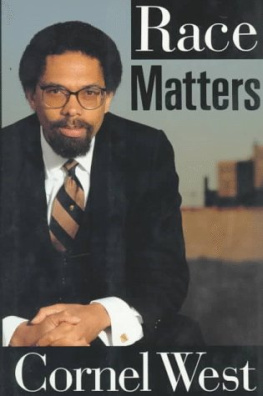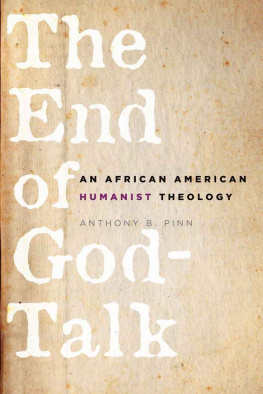Race Matters, Animal Matters
Race Matters, Animal Matters challenges one of the grand narratives of African American studies: that African Americans rejected racist associations of blackness and animality through a disassociation from animality. Analyzing canonical texts written by Frederick Douglass, Charles Chesnutt, Ida B. Wells, and James Weldon Johnson alongside slaughterhouse lithographs, hunting photography, and sheep husbandry manuals, Lindgren Johnson argues instead for a critical African American tradition that at pivotal moments reconsiders and recuperates discourses of animality weaponized against both African Americans and animals. Johnson articulates a theory of fugitive humanism in which these texts flee both white and human exceptionalism, even as they move within and seek out a (revised) humanist space. The focus, for example, is not on how African Americans shake off animal associations in demanding recognition of their humanity, but on how they hold fast to animality and animals in making such a move, revising the human itself as they go and undermining the binaries that helped to produce racial and animal injustices.
Fugitive humanism reveals how an interspecies ethics develops in these African American responses to violent dehumanization. Illuminating those moments in which the African American canon exceeds human exceptionalism, Race Matters, Animal Matters ultimately shows how these black engagements with animals and animality are not subsequent to efforts for racial justicea mere extension of the abolitionist or anti-lynching movementsbut, to the contrary, are integral to those efforts. This black-authored temporality challenges widely accepted humanist approaches to the relationship between racial and animal justice as it anticipates and even critiques the valuable insights that animal studies and posthumanism have to offer in our current moment.
Lindgren Johnson is Assistant Professor, General Faculty, at the University of Virginia, USA.
Perspectives on the Non-Human in Literature and Culture
In recent years, many disciplines within the humanities have become increasingly concerned with non-human actors and entities. The environment, animals, machines, objects, weather, and other non-human beings and things have taken center stage to challenge assumptions about what we have traditionally called the human. Informed by theoretical approaches like posthumanism, the new materialisms, (including Actor Network Theory, Object-Oriented Ontology, and similar approaches) ecocriticism, and critical animal studies, such scholarship has until now had no separate and identifiable collective home at an academic press. This series will provide that home, publishing work that shares a concern with the non-human in literary and cultural studies. The series invites single-authored books and essay collections that focus primarily on literary texts, but from an interdisciplinary, theoretically-informed perspective; it will include work that crosses geographical and period boundaries. Titles are characterized by dynamic interventions into established subjects and innovative studies on emerging topics.
Birds and Other Creatures in Renaissance Literature
Shakespeare, Descartes, and Animal Studies
Rebecca Ann Bach
Race Matters, Animal Matters
Fugitive Humanism in African America, 18401930
Lindgren Johnson
Race Matters, Animal Matters
Fugitive Humanism in African America, 18401930
Lindgren Johnson

First published 2018
by Routledge
711 Third Avenue, New York, NY 10017
and by Routledge
2 Park Square, Milton Park, Abingdon, Oxon OX14 4RN
Routledge is an imprint of the Taylor & Francis Group, an informa business
2018 Taylor & Francis
The right of Lindgren Johnson to be identified as author of this work has been asserted by her in accordance with sections 77 and 78 of the Copyright, Designs and Patents Act 1988.
All rights reserved. No part of this book may be reprinted or reproduced or utilised in any form or by any electronic, mechanical, or other means, now known or hereafter invented, including photocopying and recording, or in any information storage or retrieval system, without permission in writing from the publishers.
Trademark notice: Product or corporate names may be trademarks or registered trademarks, and are used only for identification and explanation without intent to infringe.
Library of Congress Cataloging in Publication Data
A catalog record for this title has been requested
ISBN: 978-1-138-95454-0 (hbk)
ISBN: 978-1-315-66688-4 (ebk)
Typeset in Sabon
by Out of House Publishing
For Cory
Contents
Figures
Tables
This has been a long and often lonelyand sometimes exhilaratingroad. And while I often felt lonely in my thinking and writing, there are many people who helped and inspired me along the way.
After showing up to my first class at the University of Mississippi I walked out of Bondurant Hall feeling exhilarated, challenged to really think about literature and what it could do for the first time in my life. For that, I am forever grateful to Jay Watson. Karen Raber offered encouragement where I was unsure and stuck with me. Back in my undergraduate days, Xavier Nicholas introduced me to the beauties of African American literature. Later on, Jennifer Johnson explained why she was vegetarian while I ate my hamburger. Her words opened up and changed my life.
My family has supported me and is largely responsible for any intellectual contribution I have been able to make. My dad, Carl Johnson, has always pushed me to think highly of both my mind and heart. He gently insisted early on that I not be afraid to challenge myself. And he did everything he could to give me that opportunity. My mom, Anne Johnson, always took an active interest in my education, waking up early every school day the entire span of my primary and secondary education to get my breakfastand lunchready. I remember many late nights as a kid with the two of us putting finishing touches on dioramas and poster displays. My stepmother, Mary Jo Johnson, always makes it fun to come to Winchester. In the Delta, Molly and Floyd Shaman welcomed me on more occasions than I can remember and provided local financial and emotional support. Shilpa Rai Airy, my oldest and best friend, has long inspired me with her unbeatable style and fantastic sense of humor and was ready to sympathize with my frustrations and celebrate my successes, no matter how small. The animals with whom I have lived over the course of thinking and writing this bookAnnie, Byrd, Charlotte, Darcy, Dill, Ella, Frederick, Julie Louise, Sugar, Walter, and Winonaall challenged me in their own ways and brought both great joy and some sadness to my life. I am grateful to them for sharing their lives with me.
Colleen Glenney Boggs inspired me at a time when I really needed it and repeatedly reached out to me. Knowing that there are scholars out there as smart, warm, and generous as she is gives me faith that academia can be a source of good in the world. I also want to thank John Sanbonmatsu, Susan Thomas, Anat Pick, Trent Brown, Kate Drowne, and Anne Cotterill for their feedback.
has appeared in two earlier formats: first in Food and History 3.2 (2005): 219240. It was then republished in Meat, Modernity, and the Rise of the Slaughterhouse, ed. Paula Lee (Lebanon, NH: University Press of New England, 2008): 198215. It is reprinted here with the permission of Brepols.






